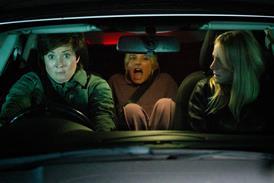Intimate look at transplant patients and their donors
BACK TO LIFE
Distributor Armoza Formats
Producer Channel 10
Length 6 x 60 minutes
Broadcaster Channel 10 (Israel)
Back To Life is a docu-reality show that follows the stories of patients and their families as they wait for a life-saving transplant.
Due to launch this year on Channel 10, each of the six episodes takes an intimate look at the struggle for survival of one person on the waiting list – while revealing the story of their donor.
Channel 10 programme manager Noa Shenhav says the series was inspired by a news story of a man who donated a kidney to a friend he hadn’t seen for 20 years.
“When we looked into it some more, we realised that every transplant story is really amazing,” she says.
Getting people to share such an intimate process was not as difficult as it might seem. “The people who needed the transplant saw the show as a way to tell a really important story,” Shenhav adds. “The people closest to the donors saw it as a way of celebrating their deceased loved ones.”
Armoza is marketing Back To Life internationally as a format. “Our industry is often criticised for using people to make entertainment, but this is one of those rare and unique opportunities where TV can do some good,” says chief executive Avi Armoza.
“Back To Life provides support for those going through the process and also creates an awareness of the importance of organ donation. There’s a lack of information out there, and people come to the subject with deeply held personal points of view – but these very moving stories can change your perspective.”
Armoza says he was initially concerned that the subject of lifesaving transplants might be too raw for TV. “But there was a positive impact on the people involved in the show,” he says.
“I also know that the production team found this to be a really meaningful professional experience.” Armoza has no doubt that the idea can travel as a format. “The issues around donorship are universal concerns,” he says.
“I also think it is in line with what a lot of buyers are asking for: real life, real emotion and authentic, relevant storytelling.”
However, he stresses that there is more to licensing the format than just the idea and the production logistics.
“The bible is very important. First you have to know how to get the right tone in your storytelling. Next you need to know the best ways to work with all the agencies and individuals involved – particularly because you’re dealing with different kinds of transplant.
“And finally, you need to know how to deal with the uncertainty of a project like this. Producers like to be in control of what they do – but there are a lot of unexpected elements in the donor/transplant process.”
Mipcom Hot Picks 2017: Formats

Intimate look at transplant patients and their donors

















































No comments yet